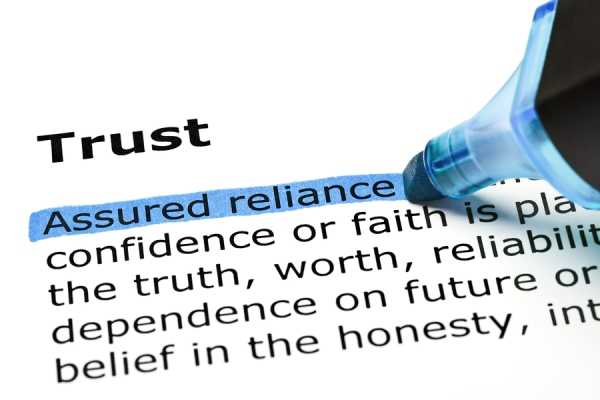
I provide webinars for those who read “Break Free From the Affair,” and sometimes record the session.
I want to share with you a transcript that answers a frequent question; once a cheater, always a cheater? and a closely related concern; can I trust?
Please know I do not take a great deal of time to edit the transcripts. They read pretty much how the conversation took place.
Here’s part 1 of a conversation that centers around trust.
Bob: What’s your question or comment, Nat?
Nat: Well, I don’t know how this relates to everybody else but I actually was not married in my situation. We were in a, what I thought, was a committed relationship. And discovered that my boyfriend had been cheating on me. And went through the process of trying to work it out, we did quite a bit of therapy there through the end. And I discovered your materials, I kind of wish I had discovered it earlier. But it seems the materials were focused on working on the relationship and always trying to stay together. And in my case, my boyfriend claimed he was sorry and he wasn’t going to do it again. And he was exhibiting behaviors to the opposite where he was still flirting with other women. I was always just up in his activities, and he is really high need. I guess he would be a “don’t want to say no,” kind of guy, where he just really needs attention from lots of different women. And that attention spilled over into sex, and things like that. So at what point do you actually decide to end this relationship? Maybe I’m questioning that a little bit or struggling with that. At what point do you say, you know because it’s different, because we weren’t married. Maybe this relationship isn’t worth saving. And/or is it really up to the other person, if you had a person, a “don’t want to say no.” Maybe that type of person just isn’t going to change. And that point, maybe married or not, it’s just not going to work. Does that make sense?
Bob: So when do you draw the line? That’s the question you’re asking.
Nat: Right. I don’t know, is there a personality that… Sorry we’re talking over time. You know, is there a personality that just is not ever going to change? He’s just a cheater. He’s going to keep cheating.
Bob: Here’s a distinction you can make.
I hear you saying two things.
Number one, he doesn’t want to say no. Someone in that category tends to be self indulged and rather narcissistic. They also don’t believe that they are doing anything wrong. Or they may believe they’re entitled. So someone who falls strictly into that category often continues to cheat. And your decision at that point is, what do I do with that?
Is the cheating something that I can live with, and many, many people do live with that kind of cheating? They close their eyes because often the person who cheats is very outgoing, friendly, often successful person with side benefits. So, I know a number of people who’ll decide to stay in that kind of relationship, because the perks are seemingly worth it.
Yeah, you sacrifice other things but that’s a decision you must make if you’re going to live with someone who doesn’t want to say no.
They’re probably not going to stop, unless they bump into extreme failure. At that point, they often exhibit strong remorseful feelings. They may change their behavior (at least temporarily) if there are extreme consequences to their behavior.
We’re talking here about affair #3, “I Don’t Want to Say No.” One strategy is to “consequence them;” to get them to realize that what they’re doing has consequences. Often their thinking does not include the concept of consequences.
You also said he needs a lot of attention, which throws different light on this situation. Here you’re talking about extreme needs. If so, it is important for him to identify his personal need system. Personal neediness frequently underlies affair #4: “I Fell out of Love, and just love being in love.” Unless he examines his personal need system he will continue to recycle his neediness.
It may be obvious to you that he has no desire to change. He’s just going to continue doing what he’s doing, at that point, you ask yourself, Am I in or am I out?
There is More for you…
This is a very brief and cursory discussion of possible ways to identify the type of affair. And, in identifying the type of affair, take specific action which speaks to that type of affair.
Knowing and pinpointing the 7 types of affairs helps you…
- Feel a sense of personal power. You create a purposeful plan and in so doing move out of the victim role. You now begin to feel your personal power in addressing the painful situation.
- See the hidden meaning. An affair is more than affair. An affair is the tip of the iceberg, under which lies a lifetime of painful self-defeating patterns. Identifying the patterns places the responsibility where it belongs – on the cheating spouse.
- Build your knowledge brain cells regarding infidelity.
- More knowledge = More Power.
- More Power = More Options.
- More Options = Feeling Better.
- Feeling Better = Success.
Do this now…
Grab your copy of the “7 Types of Affairs Cheat Sheet.” It’s FREE!
The cheat sheet will introduce you to the 7 Types of affairs. A new world will open for you.
Click this button…
 Don’t wait any longer.
Don’t wait any longer.























